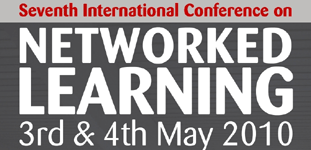

Magical expertise: An analysis of Finland's national magician network
Olli Rissanen
University of Eastern Finland, Savonlinna, Finland
Tuire Palonen
University of Turku, Turku, Finland
Kai Hakkarainen
University of Helsinki, Helsinki, Finland
Abstract
A social network analysis among 120 Finnish magicians was carried out through assessing several variables: individual attributes; magicians' competence (expertise), various interactions (mentoring, advice seeking, collaboration), as well as the individuals' perceived status (respect and admiration) and social position. Competence in the skills needed in the domain is the result of a large amount of practice, and institutional education is mostly missing. The tricks of the trade are learned form the more experienced members, or created by magicians themselves. Mediating tricks takes place only inside trusted sub-groups or sometimes the magicians sell the tricks or presentations to each other. The data for the study were collected via questionnaire. The response rate was 81%. The results indicate that social network among magicians was rather sparse. There is, however, some activity on the community level related to advice seeking, support giving, and informal communication. All network dimensions are related to each other, i.e., there are many multiplex network ties among magicians. The analysis indicated that the magical networks shared characteristics of classical networks in terms of power distribution of networking linkages; there were a large number of participants with a few or no linkages at all whereas a small percentage of key actors were extremely well connected with participants of the network. Consequently, peer evaluation indicators measuring support, advice and admiration varied a great deal between the magicians. Based on the cluster analysis, the magicians can be classified as "Community core" (4), "Masters" (9), "Background persons" (13), "Practitioners" (72), and "Soloists" (18), and unclassified (4). Community core is a group consisting of a few prestigious, experienced magicians keeping up the magical network, intensively supporting other magicians on the field, providing advice to other community members. Masters are highly respected magicians who are guiding other magicians but not as intensively as the Community core. Soloists are rather well known and highly respected but not so much engaged in giving advice as Masters or the Core. Practitioners constitute the biggest group that is not very tightly connected to the rest of the group, and, presumably, not so well known in the field. It is concluded that age or seniority does not explain magician competencies as assessed by their peers; while all of the most highly regarded magicians had gone through more than two decades of practice, ages of the most prestigious magicians varied a lot and included some relatively young participants.
| About NLC | Welcome Messages| Acknowledgwments | Conference Proceedings| Keynote Speakers| Index of Presenting Authors| Contact |